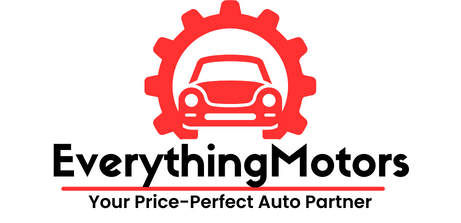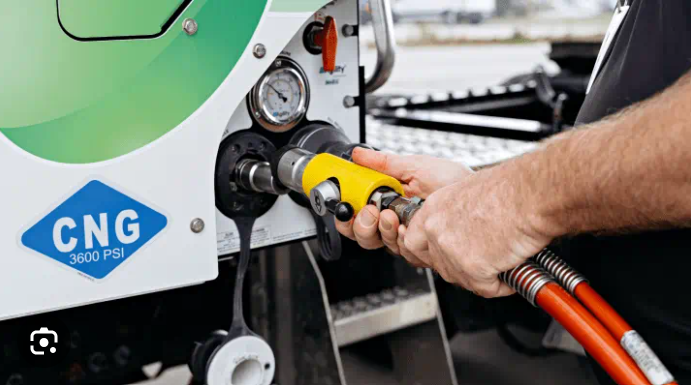Which is Better: CNG vs Petrol Cars in Nigeria?
Nigeria has one of the largest and most vibrant transportation sectors in Africa, with millions of vehicles navigating its roads daily. From bustling urban centers to rural highways, the choice of fuel is essential for both personal and commercial vehicle owners across the country.
Recently, President Bola Tinubu announced that the price of petrol (PMS) will now reach N1,000 per litre, while Compressed Natural Gas (CNG) will be available at N200 per Standard Cubic Meter. This significant price difference has led many Nigerians to reconsider their fuel options. Despite the rising number of CNG stations throughout the nation, a considerable portion of vehicle users remains skeptical and curious about the benefits of switching from petrol to CNG.
In this article, we’ll break down everything you need to know about CNG and petrol cars in the simplest terms, weighing their pros and cons to help Nigerian drivers determine which fuel option best suits their needs. Given the country’s fluctuating fuel prices and growing environmental concerns, making an informed choice between petrol and the increasingly popular CNG is more critical than ever.
Understanding CNG and Petrol Cars
What Exactly is CNG?
Compressed Natural Gas (CNG) is basically natural gas that’s been compressed to fit in a fuel tank. It’s different from the regular petrol (PMS) we’re used to in Nigeria, but it powers a car in almost the same way.
How Do CNG Cars Work?
CNG cars work just like petrol cars but with one big difference—they burn natural gas instead of liquid petrol. To make the switch, you’ll need a special tank installed in your car that holds the gas under high pressure.
Can You Convert a Petrol Car to CNG?
Yes! If you already have a petrol car, you don’t have to buy a new vehicle to use CNG. You can convert your existing car by installing a CNG conversion kit. This kit allows your car to run on either petrol or CNG, giving you the flexibility to use whichever fuel is available. Additionally, the Nigerian government has compiled a list of CNG fueling locations across the country to help you find the nearest stations. You can check out this list at PCI CNG Conversion Centers.
How Much Does it Cost to Convert to CNG?
Converting your petrol car to CNG in Nigeria costs anywhere between N200,000 and N500,000, depending on the car’s make and model. This might seem like a lot upfront, but think about how much you’ll save in the long run with CNG costing just N200 per unit compared to petrol’s N1,000 per litre.
Fuel Efficiency and Costs
Which Fuel is Cheaper: CNG or Petrol?
When it comes to cost, CNG wins hands down. With petrol now costing N1,000 per litre, you can cut your fuel expenses by over 80% by switching to CNG, which costs just N200 per unit.
How Much Does Each Fuel Last?
CNG cars generally use less fuel compared to petrol cars. For instance, if you drive a taxi in Lagos, you might notice that CNG takes you further per unit than petrol would. So not only is it cheaper, but you’re also refuelling less often.
How to Calculate Your Fuel Savings
Let’s do some simple maths. If you spend N5,000 on petrol to drive a certain distance, you would only spend about N1,000 on CNG for the same trip. Over time, that adds up to major savings for Nigerian drivers who cover long distances every day, like taxi drivers, Uber/Bolt drivers, and bus operators.
What Rising Fuel Costs Mean for Nigerian Drivers
With the way petrol prices keep increasing, switching to CNG could be your best bet to avoid constantly draining your wallet. Fuel costs take up a huge chunk of what many Nigerians spend on their vehicles, so any chance to save is worth exploring.
Nigerian Road Conditions and Infrastructure
What’s the Road Network Like in Nigeria?
Nigeria’s roads can be challenging, especially during the rainy season. Potholes, bad patches, and general wear-and-tear are common issues that affect all vehicles, whether they are CNG vs petrol cars in Nigeria.
Are There Enough CNG Filling Stations in Nigeria?
CNG stations aren’t as common as petrol stations yet, but they are gradually increasing as the demand for compressed natural gas grows. Many stations are located in major cities where the infrastructure is being developed to support alternative fuels.
Here are some key locations where you can find CNG filling stations:
1. NIPCO CNG Stations
NIPCO has stations in several states, including Lagos, Abuja, Ogun, Edo, Delta, and beyond. In Ogun State, for example, you can find NIPCO stations in areas like Ibafo and Sagamu. This makes it more convenient for residents and drivers in the region.
2. Gasco Marine CNG Stations
They are primarily located in Oke-Sokori, Abeokuta, Ogun State. If you live around Ogun State, you’ll find several stations ready to serve you, making it easier to refuel with CNG.
3. Femadec Energy CNG Stations
Femadec Energy has stations in Rivers State, particularly in Port Harcourt, but they are also expanding to other areas, so you might find one closer to you as they grow.
How Do Nigerian Roads Affect Car Maintenance?
When it comes to CNG vs petrol cars, Nigerian roads can be tough on your vehicle. However, CNG cars might need fewer repairs because the fuel burns cleaner and causes less wear on the engine. But both fuel types require regular maintenance to keep your car running smoothly.
Maintenance and Repair
Which Cars are Cheaper to Maintain?
If you’re wondering about maintenance costs, CNG cars usually come out on top. They tend to have lower maintenance costs compared to petrol cars. Why? Because CNG is a cleaner fuel! This means it doesn’t leave behind much residue in the engine. So, if you own a CNG car, you won’t have to make frequent trips to the mechanic, which saves you time and money.
Are CNG and Petrol Cars Easy to Repair?
When it comes to repairs, petrol cars have been around for a long time. This makes it easier to find spare parts and mechanics who know how to fix them. However, as more Nigerians start driving CNG cars, more mechanics are learning how to work on them too. At Everything Motors, we repair all kinds of vehicles, including CNG cars. So, whether you need a simple oil change or a more complicated fix, we’ve got you covered!
Can You Find Spare Parts for CNG Cars?
Finding spare parts for CNG cars is becoming easier, especially in larger cities like Lagos and Port Harcourt. As more people switch to CNG, the availability of these parts will only improve. At Everything Motors, we can help you find genuine spare parts for CNG vehicles at original prices, so you don’t have to worry about inflated costs. You can trust us to provide fair pricing and quality parts.
Do Mechanics Know How to Fix CNG Cars?
Yes, they do! While you might need to search a bit harder for experienced mechanics in smaller towns, expertise is definitely growing. You can always find trusted mechanics within Lagos, Port Harcourt, and Asaba through Everything Motors. We’ll connect you with reliable professionals who can take care of your vehicle, whether it’s a CNG or petrol car.
Safety Features and Concerns
Are CNG Cars Safe?
Yes, CNG vs petrol cars safety is a common concern, but CNG cars are safe. They come with special tanks that are designed to hold the gas at high pressure, and they’re built to withstand accidents. In fact, CNG cars are no more dangerous than petrol cars.
What About the Risk of Accidents?
Both CNG and petrol cars have safety features like airbags and anti-lock brakes to help prevent accidents. However, the high-pressure tank in a CNG car is designed to handle impact, reducing the risk of explosions.
Nigerian Market and Government Policies
Are CNG Cars Available in Nigeria?
Yes, CNG cars are becoming more common, especially with rising petrol prices. Brands like Toyota and Hyundai are introducing models that run on CNG.
What is the Government Doing to Promote CNG?
The Nigerian government is encouraging drivers to switch to CNG by offering subsidies to cover conversion costs. They’re also working to set up more CNG stations across the country.
Conclusion:
We hope this article has effectively addressed your questions and concerns, clearing up any confusion surrounding CNG cars. With the insights provided on cost-effectiveness, and the benefits of switching to CNG, we aim to empower you to make informed decisions about your vehicle and fuel choices in Nigeria.


